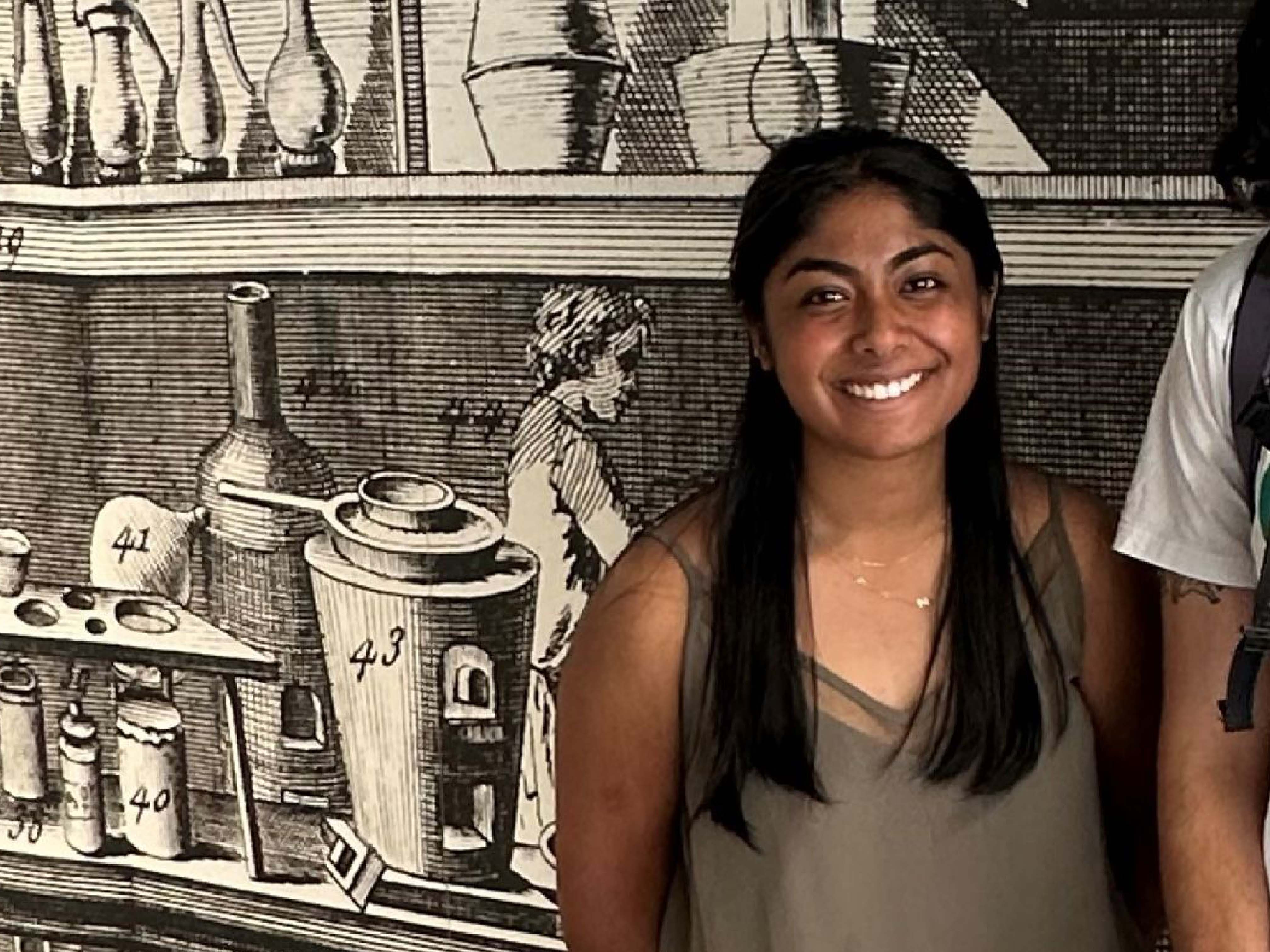Member Profile – Sam Zaman
Sacrifices must be made in the battle to cure cancer. For PhD student Samantha Zaman, that meant leaving behind her home, family, and friends to spend a year on the other side of the world.
As if grappling with advanced new techniques in physics and chemistry wasn’t hard enough, Sam has also taken on the challenge of learning a new language and adjusting to a new culture, all without falling behind in her postgraduate journey.
But true to form for a member of Exciton Science, she’s tackled each challenge head on and is thriving during her stay at KU Leuven in Belgium.
“Coming here, the only person I knew was my supervisor,” Sam said.
“Meeting new people, making new friends, not just figuring out how the university runs, but also how the country runs, where to do your grocery shopping, how to order a coffee in a different language - all those are things that I'm still learning.
“But it's funny how quickly you can fit in. I'm learning so much about a different culture.

PhD student Sam Zaman
“I didn't expect to make such good friends and I was surprised by how friendly everyone is. Here, they have lunch together every single day.
“That's everyone from our Masters students all the way to Susana [Rocha], the professor that runs the group. I really like the group spirit here.”

By rapidly developing a new support network and making herself at home in Europe, Sam has created the conditions to make progress in her PhD, which is taking place under the joint supervision of Prof Susana Rocha and Exciton Science Chief Investigator Dr James Hutchison of the University of Melbourne.
“I'm looking at multifunction nanoparticles for light-mediated cancer therapy,” she said.
“The particles will absorb light and then generate an anti-cancer response.”
“In Melbourne we are very good at making, synthesising and characterising nanoparticles. But to have a cancer therapy that can actually kill cancer, we need to be able to understand what it does to human cells, and specifically to tumours.
“Here at KU Leuven, they’ve developed three-dimensional tumor models to mimic what it's like inside the body. We want to test the particles that I've been making in Melbourne on these cell models to see what we can do to improve our particles.
While members of the Nanoscience Laboratory have keenly felt Sam’s absence in recent months, they were consoled by the welcome presence of Maria Bravo, a PhD student who made the opposite journey from KU Leuven to benefit from the collective knowledge and skills of Exciton Science.
“We swapped places,” Sam said.
“She learned how to make novel nanomaterials that she can use on her cell cultures and cell models. Her expertise is in cell models and she's learning nanomaterials, whereas my expertise is in nanomaterials and I'm learning the cell models.
“Our goal is to be able to exchange knowledge and broaden the horizons of each of the research groups.”
While there have been plenty of challenges along the way, Sam had no hesitation in recommending other students follow in her footsteps and embrace a chance for short or long-term exchange.
“Do it,” she said.
“Absolutely give it a go. I think it's really an amazing opportunity to learn, to push yourself and to grow. When I go back to Melbourne, I think I'll be a completely different person to who I am now. It's fun to discover, academically or in a research capacity, how much you can learn that's different to what you would do in your own lab.
“But also personally, it's really nice to be able to experience a new culture, to meet different people and to make friends in a different continent, on a different side of the world.”
Alumni profile: Heyou Zhang